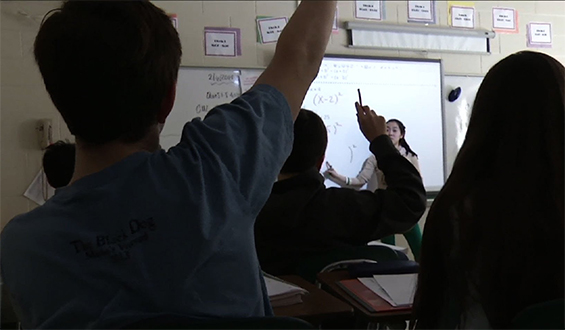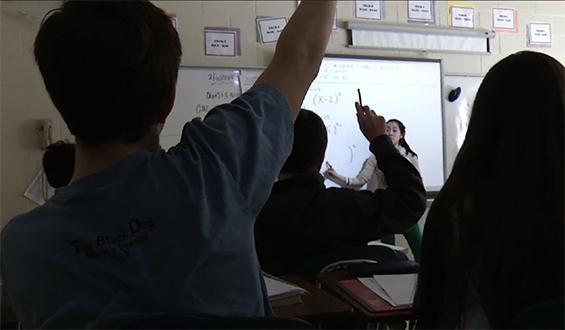 (Image: NJTV, Creative Commons)
(Image: NJTV, Creative Commons)
A newly-released report from the Center for American Progress takes a closer look at Massachusetts’ approach toward teacher evaluations, suggesting that the state offers a way to support the continuous improvement of educators that could help the rest of the US.
Teacher evaluations have seen drastic change over the past eight years. Partially due to policies implemented by President Barack Obama, many schools have introduced teacher evaluation systems that include several measures of teacher impact. According to the report, model systems are typically focused on continuing teacher improvement, offering educators a way to observe areas of weakness and connecting them with needed support.
The report, “Educator Evaluation: A Case Study of Massachusetts’ Approach,” suggests that such a change toward formal systems of evaluations is needed in order to ensure that high levels of quality teaching and learning are taking place. While the authors do acknowledge that evaluation systems are not the only way to improve the quality of teaching within a school, they add that well-designed systems are an important aspect of teacher development and support, saying that they offer teachers a framework from which to improve.
Teacher evaluation systems have faced mounting criticism in recent years, with many teachers and advocates arguing that student test scores are neither a fair nor accurate way to measure teacher performance. This idea has caused federal policies on the topic to change in order to offer states and districts the flexibility to create their own evaluation systems.
The authors state that the system used in Massachusetts in particular is an “interesting” one, as test scores are used as a check rather than a driver of the system, putting it on the less controversial end. In addition, the state allows school leaders to determine teacher effectiveness rather than using an algorithm to do so. The report states that by doing so, the state “supports the continuous improvement of educators.”
In an effort to change the way evaluation systems are created, 27 states now require annual evaluations for their teachers, while 45 states require annual evaluations for all teachers on probation. In 2009, only 15 states required annual evaluations.
Many of these evaluation systems now include student and parent surveys, lesson plan reviews, teacher self-reflections, and student artifacts in addition to student achievement and classroom observations. Each of these is meant to create a more accurate portrayal of how a teacher is performing in the classroom.
The report suggests that as states continue to craft their models to work better, they may want to look at the Massachusetts model as an example to follow. The authors state that the model used within Massachusetts was designed in order to offer continuous development while “ensuring that educators have multiple opportunities and methods to maximize student learning.”
The framework used by the state allows for increased local control, considers the difference between educator practice and educator impact, and puts teacher development as the most important piece of the evaluation process.
“Massachusetts strives to use evaluation ratings to promote educator learning and positive changes to schools, as opposed to using ratings as a punitive metric of educator performance.”




